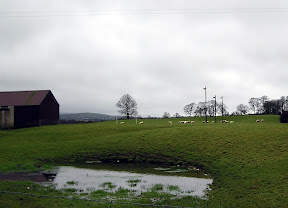I get those "Rugby Coach" emails, probably like a lot of you, from Dan Cotrell. A while ago he'd told me to feel free and post anything, so here you go. Any thoughts?
How To Coach Teenage Girls
A revolution is coming. The number of teenage girls playing rugby has exploded – around 200 clubs in the UK alone now having active sections. John Birch explains what to expect.
Some girls’ rugby teams survive and thrive, but many do not. Sections that fail rarely do so due to a lack of interest and ability but normally due to problems with coaching. And yet girls’ rugby can be hugely rewarding to coach if taken seriously and organised appropriately.
Language
What you say matters. Remember your girls have already made a huge step by seeking to play a “boys” sport. The foundations on which they stand will be shaky. Boys have innumerable male rugby role models – but most girls will never have seen women playing rugby. Avoid saying anything that reinforces the image of rugby being a “male” game – “pass to the man on your left” or “eight-man scrum” (“pass to your left”? “eight in the scrum”?).
Group dynamics and sporting background
Girls are natural team players – far more so than boys of the same age. Selfish “star” players who never pass, always expect to be picked, and demand to be the centre of everything may exist in female sport, but if they do then they are exceedingly rare. In practice girls are remarkably unselfish. On the field they will pass readily – to the point where initially you have to stop them passing so much and get them to run with the ball first.
This is partly a function of previous sporting experience – especially netball. Passing and catching come far more naturally – although beware that the reflex reaction among new girls when they catch the ball will be to stop dead!
Boys tend to…
- Have positive male rugby role models.
- Have seen many hours of men’s rugby.
- Kick a ball.
- Have to be encouraged to work as a team.
- Require a new skill to be reintroduced in several ways.
- Be mature enough to take on a significant leadership rolefrom 15/16.
- Grow significantly until 18/19.
- Be suited to a tactics based on strength and aggression.
Girls tend to...
- Not know any women rugby players.
- Have never seen any women’s rugby.
- Throw and catch a ball.
- Naturally work as a team.
- Learn new skills very quickly.
- Be mature enough to take on a significant leadership role from 13/14.
- Grow significantly until 14/15.
- Prefer tactics based on skill and speed.
Communication and learningThe standard “I speak/you listen” rarely works for long. Girls will want to discuss things, discussions which often fly off at tangents. Try to keep control, but allow some free flow because you will find that despite (or because of?) this when you start the drill they will understand it much better.
Girls learn FAR more quickly than boys and one consequence of this is that you should be prepared to cover more in a session than you might for boys’ of the same age!
* Advertisement *
Strength and aggressionGirls are not as naturally aggressive – “Don’t be so NICE!” was often repeated in our first season. Cheating and general gamesmanship is also quite rare and cause remarkable (even disproportionate) outrage.
Perhaps the most obvious difference is the physical strength. Up to 13/14 there’s little real difference, but after that age girls virtually stop growing. Work with 15 or 16 year old girls and then return to boys and it’s a shock. A wider age range can play and train together, but that tactics and drills that rely on a bit of muscle can be inappropriate.
SUMMARY * Girls are natural team players.
* Prepare to cover more in a session than you might normally.
* Use appropriate language – and be prepared to adopt a more
discursive style.
* Previous sporting experience is likely to be netball, not soccer.
* Playing styles based on strength and aggression will be less
effective.
For more , see Dan Cotrell's site,
Better Rugby Coaching ...











